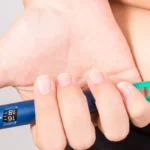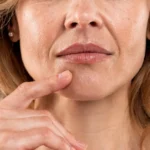THE WHAT? The Official Journal of the European Union has published a ban on the use of cosmetic silicones D4, D5, and D6 in all wash-off and leave-on products. This new regulation builds upon existing restrictions imposed by REACH on rinse-off cosmetics containing D4 and D5, now extending these limits to broader applications within the beauty and personal care industry.
THE DETAILS Regulation 2024/1328, effective from 6 June 2027, enforces a complete ban on D5 and D6 in concentrations over 0.1% in all cosmetic products. Previously, the Cosmetics Regulation had entirely prohibited D4 since 2018, and restricted D5 in rinse-off cosmetics to a maximum concentration of 0.1% since 2020.
The European Chemicals Agency (ECHA) has highlighted the environmental and health hazards posed by these silicones, noting their detection in human plasma, abdominal fat, and breast milk. ECHA flagged D4, D5, and D6 as substances of very high concern due to their persistent, bioaccumulative, and toxic (PBT) characteristics. These silicones have been found to cause significant environmental harm, affecting both aquatic and terrestrial organisms.
THE WHY? The ban follows years of scientific assessments and regulatory actions to address the unacceptable risks associated with D4, D5, and D6. The ECHA’s Risk Assessment Committee and Socio-Economic Assessment Committee both supported an EU-wide action, leading to this comprehensive ban. This move is part of a broader effort to mitigate the long-term environmental and health impacts of these substances, which have been found to persist and accumulate in various ecosystems worldwide. The EU’s proposal to classify D4, D5, and D6 as persistent organic pollutants under the Stockholm Convention further underscores the global concern over their use and distribution.
Clinical aesthetics products refer to a category of products used in the field of medical aesthetics or cosmetic dermatology. These products are typically designed and formulated to be used under the supervision of healthcare professionals, such as dermatologists, plastic surgeons, or trained aestheticians. They are distinct from over-the-counter cosmetics in that they often contain active ingredients or formulations that require expertise in their application or administration.
Examples of clinical aesthetics products include:
-
Dermal Fillers: Injectable substances used to add volume, smooth wrinkles, and enhance facial contours. Examples include hyaluronic acid fillers like Juvederm and Restylane.
-
Botulinum Toxin (Botox): Injectables that temporarily paralyze facial muscles to reduce the appearance of wrinkles caused by repetitive movements, such as frown lines and crow's feet.
-
Chemical Peels: Solutions applied to the skin to exfoliate and improve its texture. They can treat acne, pigmentation issues, and signs of aging.
-
Laser and Light Therapies: Devices that emit focused light or laser energy to treat various skin conditions, including acne, scars, and signs of aging.
-
Prescription Skincare Products: Formulations containing active ingredients like retinoids (vitamin A derivatives), hydroquinone, or prescription-strength antioxidants to address specific skin concerns under medical supervision.






